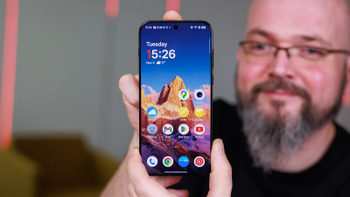Gorilla Glass maker offers global changes to settle EU's competition investigation

Following a competition investigation launched by the European Union earlier this month, which raised concerns about possible exclusive dealing, Corning, the maker of Gorilla Glass, has proposed several changes to its contract terms in an effort to resolve the issue.
As per the EU Commission's press release, Corning has proposed several remedies, including removing all exclusivity clauses from its existing contracts with phone manufacturers, pledging not to use such clauses in the future, and no longer requiring customers to purchase specific stock quantities from the company.
Additionally, Corning has committed to enforcing its patents on break-resistant cover glass solely through patent infringement claims rather than breach of contract.
Another proposal from Corning targets third-party companies that process raw glass, also known as finishers. The company is offering not to mandate that finishers source more than 50% of their total demand for sodium aluminosilicate (NAS) glass, LAS glass, and clear glass ceramics from Corning. Additionally, Corning pledges not to tie any price advantages to meeting these purchasing conditions.
Furthermore, Corning has committed to not requiring finishers to concentrate more than half of their combined demand with the company in any other way.
If approved, Corning's proposed changes will apply globally and remain in effect for a minimum of nine years. Throughout this period, the EU will monitor Corning to ensure the company complies with the new terms.
Third parties have six weeks to contest the commitments, and these terms could be adjusted before the EU formally accepts them. If Corning doesn't uphold its obligations, it could face penalties of up to 10% of its global revenue, which would amount to around $1.25 billion based on its 2023 earnings.
Corning responds with a nine-year plan for change
As per the EU Commission's press release, Corning has proposed several remedies, including removing all exclusivity clauses from its existing contracts with phone manufacturers, pledging not to use such clauses in the future, and no longer requiring customers to purchase specific stock quantities from the company.
Another proposal from Corning targets third-party companies that process raw glass, also known as finishers. The company is offering not to mandate that finishers source more than 50% of their total demand for sodium aluminosilicate (NAS) glass, LAS glass, and clear glass ceramics from Corning. Additionally, Corning pledges not to tie any price advantages to meeting these purchasing conditions.
If approved, Corning's proposed changes will apply globally and remain in effect for a minimum of nine years. Throughout this period, the EU will monitor Corning to ensure the company complies with the new terms.
These commitments offered by Corning are applicable worldwide and would remain in force for a period of nine years. Their implementation will be monitored by a monitoring trustee who will report to the Commission for the entire period.
– EU Commission, November 2024
Follow us on Google News










![A new Android bug is making it impossible to install new apps. Are you affected? [UPDATE]](https://m-cdn.phonearena.com/images/article/176703-wide-two_350/A-new-Android-bug-is-making-it-impossible-to-install-new-apps.-Are-you-affected-UPDATE.webp)

Things that are NOT allowed:
To help keep our community safe and free from spam, we apply temporary limits to newly created accounts: